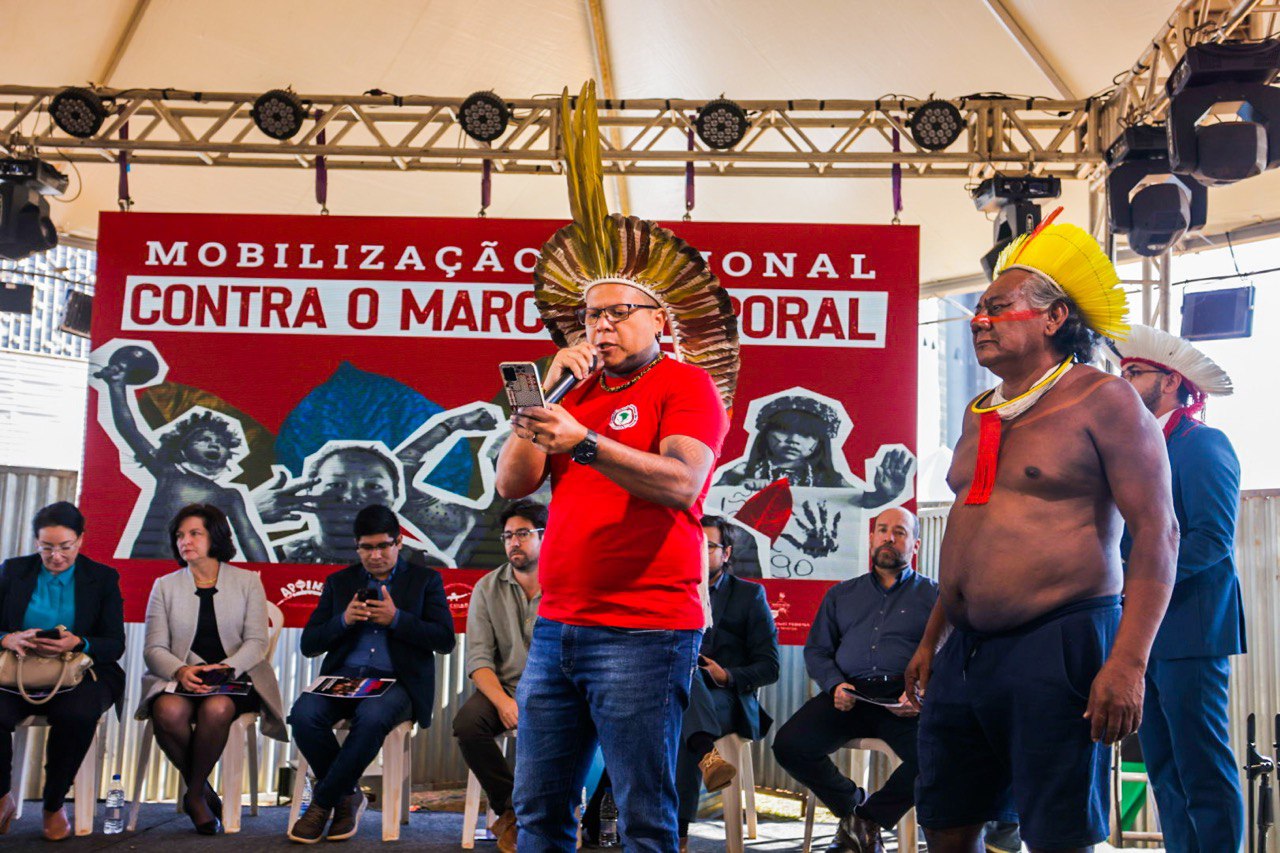
The Yanomami child stares with blank eyes out of a body reduced to skin and bones by extreme hunger. The image of the Yanomami humanitarian crisis circled the globe early this year. On Jan. 21, the Health Ministry of the new government of Luiz Inácio Lula da Silva declared a medical emergency in Yanomami Indigenous territory deep in the Amazon rainforest that for years has been invaded by illegal miners and loggers, and more recently, organized crime.
Months later, little has improved. In an exclusive interview with the Americas Program, Indigenous leader Kleber Karipuna of the Karipuna people from Rondônia, a Northern state that is part of the Amazon, blamed successive Brazilian governments for the Yanomami plight, particularly aggravated by neglect and hostile policies carried out during the time of President Michel Temer (2016-2019) and intensified under President Jair Bolsonaro (2019-2023).
Karipuna, who is also Executive Coordinator of the Articulation of Indigenous Peoples of Brazil (APIB), stated, “In the past, there were times when we had policies to protect Indigenous lands that were more effective. But as time went by, they disintegrated and they became even weaker in the last years, to the point of disappearing, leaving Indigenous lands vulnerable. In the case of the Yanomami, they suffered from government negligence, exposing them to illegal miners, loggers and drug dealers.”.
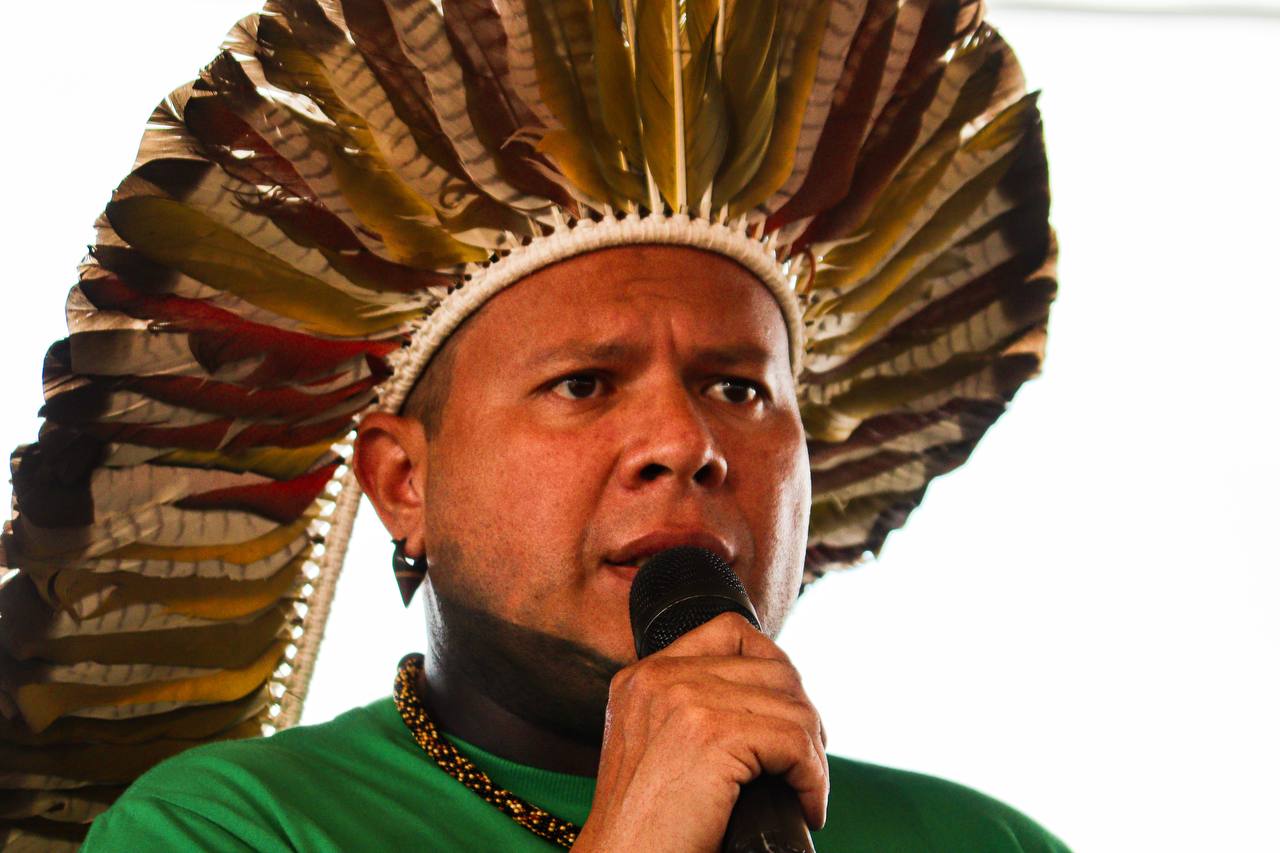
Karipuna paints a grim picture of a beautiful land overrun by illegal armed bands with little or no control by authorities. The Yanomami face violence and disease, forced prostitution, forced displacement, famine, rape, illness and corruption of minors, among other grave human rights violations. Lula’s Justice minister, Flavio Dino, has called it a clear case of genocide.
Exterminating land defenders from infancy
This isn’t the first time the Yanomami have been targeted by genocidal attacks. In 1993, sixteen of their people were slaughtered by gold miners. In 1997, the Supreme Court upheld the conviction of the miners, finding five guilty of genocide.
According to reports from the Ministry of Indigenous Peoples, at least 99 Yanomami children aged 5-year-old or younger perished last year. In January a report from the Health Ministry revealed that the Yanomami concentrated almost 10% of malaria cases in Brazil, although representing just about 0.013% of Brazilian population. From 2019 to January 2023, a total of 570 Yanomami children died due to malnutrition, hunger and mercury poisoning, as miners contaminate the rivers during illegal gold prospecting and processing. Many indigenous leaders believe the increased attacks on the Amazon land and peoples were encouraged under Bolsonaro. “Bolsonaro’s speeches announcing that Indigenous lands will be open for large enterprises are associated with the influx of land grabbers in Indigenous territories,” stated Karipuna. The indigenous leader cites Bolsonaro’s green light to extractive industries and the weakening of state institutions including the National Indigenous People Foundation (FUNAI) and the Brazilian Institute of the Environment and Renewable Natural Resources (IBAMA) as the prime causes of increased incursions in indigenous territories. Researcher and activist Priscilla Oliveira from Survival International’s Brazilian chapter has also traced the ravages of extractive activities on indigenous lands.
“They deforest the land, scare away the game (an important part of the Yanomami diet), pollute the rivers and the fish with mercury, and spread disease and violence,” she stated in an interview with the Americas Program.
“Add to this the lack of governmental action to evict the miners, protect the territory, send medical staff, distribute medicine and other health tools. And in the last government (Bolsonaro’s), it was more than omission–it was a movement to promote the extermination of the Yanomami.”
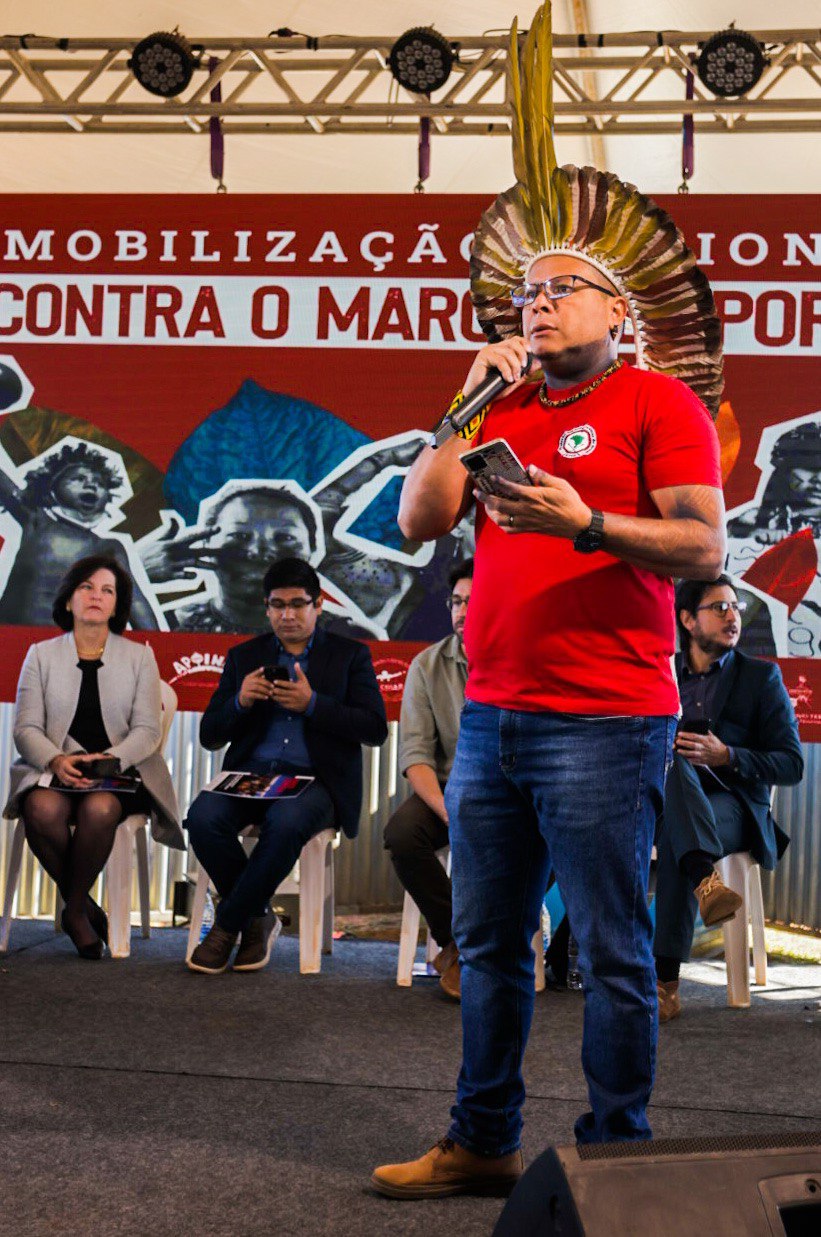
Oliveira recalls that before the Bolsonaro presidency, there were around 10,000 illegal miners operating in the territory. “The situation was far from being the ideal scenario, but with his government it took on catastrophic proportions. Bolsonaro and his allies encouraged illegal mining with speeches and legislation; they practically stopped expelling the invaders,” said the Survival International member.
“This led to lots of practical consequences in many Indigenous areas, ranging from the dismantling of health services, to the lack of regulation and monitoring of the land, building the scenario for the human crisis that we are seeing now,” explains Oliveira.
APIB has demanded an investigation of the actions of the Bolsonaro government for crimes against humanity in the International Criminal Court in the Hague. The indigenous organization specifically denounced former FUNAI president Marcelo Xavier and his allies for crimes against the Yanomami people and other Indigenous peoples throughout Brazil.
Other Indigenous territories face illegal invaders in situations similar to the Yanomami. Chief Raoni of the Kayapo, located in the Xingu Indigenous Park, has repeatedly warned that Indigenous lands are under the grip of illegal miners. The Munduruku people located in the basin of the Amazon river in the Pará state, in the Northern region, have also denounced and documented the invasions.
Karipuna added that in “other territories outside the Amazon and in other biomes in the Northeastern and Southern regions there are already invasions related to mining exploitation and they suffer as much as the Indigenous peoples in the Amazon.”
In late April, around 6,000 Indigenous representatives from 200 communities gathered in Brasília for the 19th Free Land Camp event, considered the largest indigenous mobilization in the country. There they debated the growing dangers of climate change and their struggle for the Federal Supreme Court (STF) to eradicate the threat posed by the ‘Milestone Thesis’ (Marco Temporal), a legal thesis that curtails Indigenous peoples’ rights by positing that they only have the rights for lands that were in their possession on October 5, 1988, the day the Brazilian Constitution was promulgated. Indigenous activists have united in their opposition to the ‘Milestone Thesis’.
The Land Demarcation of Indigenous Territories in Brazil is a measure to guarantee the rights of the natives on the lands. It should establish the real extension of Indigenous territories to reaffirm the protection of the demarcated lands and forbid the action of invading parties. However, the process came to halt under Bolsonaro, Indigenous peoples at Free Land Camp reiterated the demand for “Demarcation Now!”.
More dialogue with the new government, but still not enough
The pictures of the President Lula’s arrival in Yanomami territory surrounded by the Minister of Indigenous Peoples Sônia Guajajara, from the Guajajara people, and FUNAI head Joênia Wapichana, a member of the Wapichana people, signaled that the current leader is more open to dialogue on Indigenous and environmental matters.
“I believe that in the current government we have more space and structure to dialogue and to collectively develop the policies and actions needed to protect Indigenous lands,” said Karipuna. He noted that the Presidential office has already carried out some measures requested by his people to ensure the protection and remove invading miners and other intruders from indigenous land.
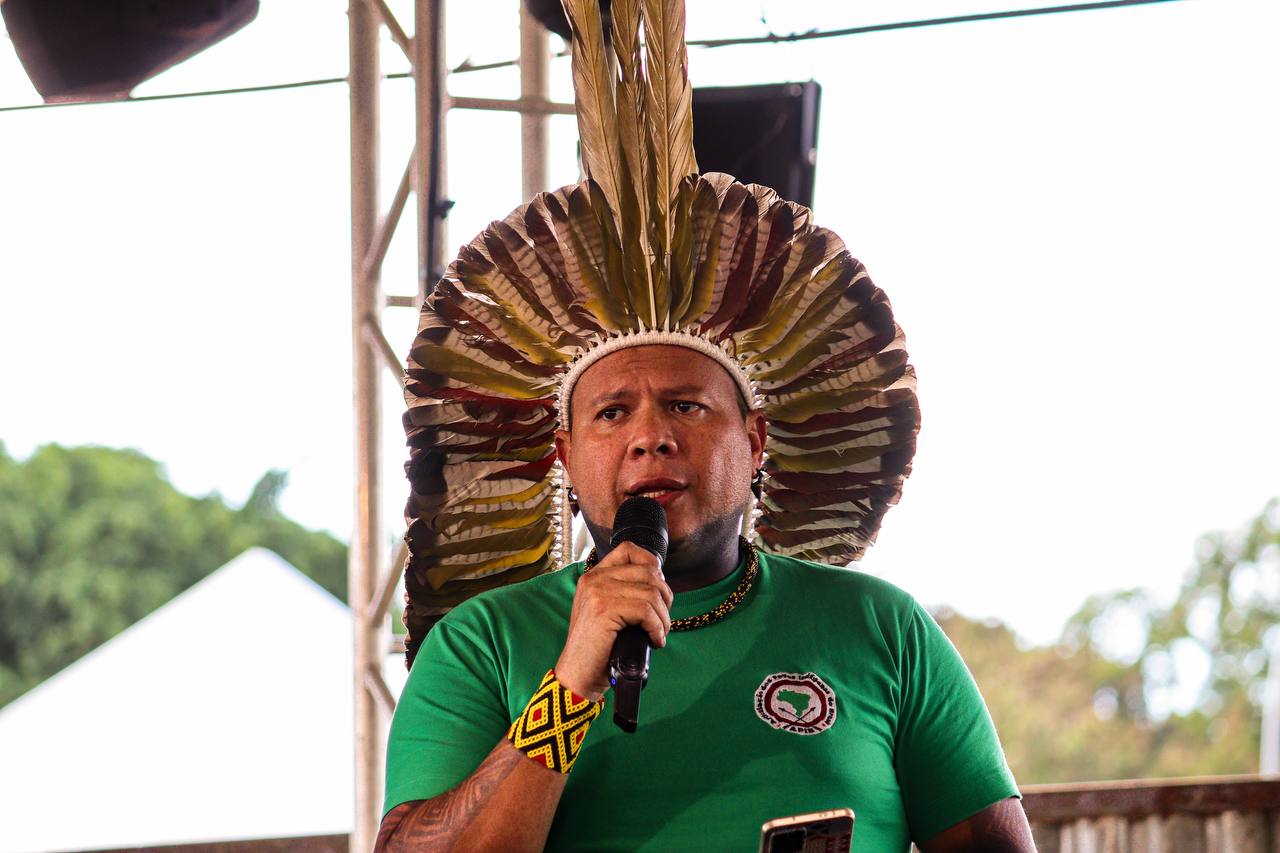
In February of this year, the government launched a joint action against the invaders, with agents from IBAMA, FUNAI, the National Force and the Federal Police. They carried out numerous actions to combat illegal activities, burning the miners’ airplanes and apprehending materials and equipment employed in the illegal mining business. “We know these actions have been helpful, but they are still too incipient and too superficial,” Karipuna commented. He expressed the need to not only root out the invaders, but also establish oversight and monitoring in Indigenous lands to ensure that the criminals won’t creep back in once law enforcement leaves the region.
The Brazilian authorities and indigenous peoples have a long battle ahead to reclaim Indigenous territories from the invading miners. In May, 36 hours of carnage left at least five people killed in actions by masked illegal miners who allegedly stormed the Yanomami village of Uxiu. These events are being investigated by the Federal Police and are just some among many that show how much time and resources will be required to get the problem under control.
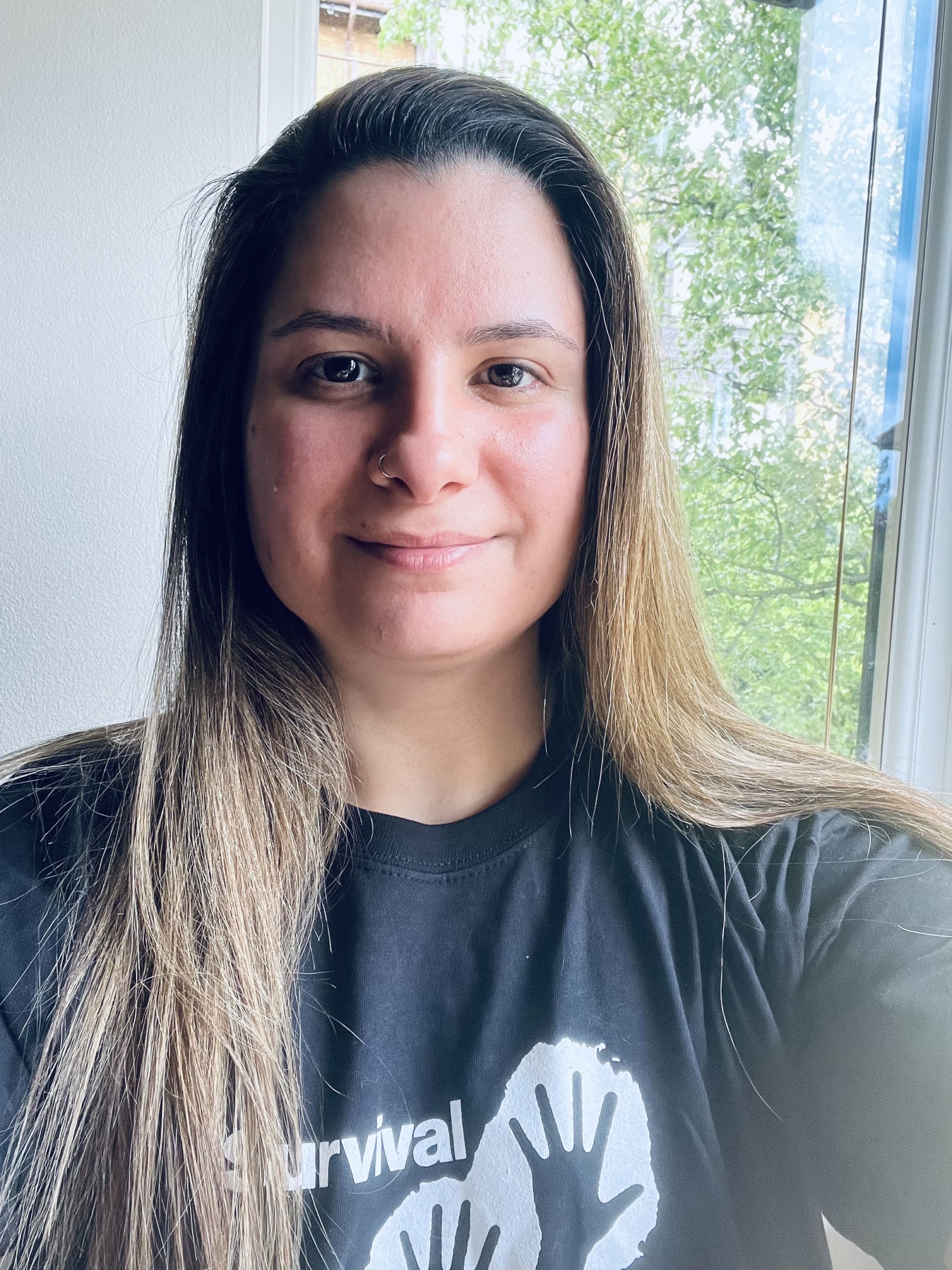
Oliveira also recognized that the Lula government has carried out some important actions such as sending in emergency brigades to retrieve and assist Indigenous peoples in dire situations. Health professionals have been sent in to bolster existing services and provide medicines and fortified milk to fight malnutrition, The Brazilian Air Force has built a new field hospital in the city of Boa Vista in the Monte Cristo region, following a request from the Justice Ministry, while the Federal Police opened investigations on illegal mining activities, and Supreme Federal Court’s Minister Roberto Barroso has opened an investigation on the alleged participation of the Bolsonaro government in crimes of genocide against the Yanomami community. The procedure is not public, but the press reported that Barroso sent documents that “suggest a picture of absolute insecurity of the indigenous peoples involved, as well as the occurrence of action or omission, partial or total, on the part of federal authorities, aggravating this situation.”
The plight of the Yanomami continues. Oliveira recognized the advances but warned, “Meanwhile many illegal miners remain, and the territory isn’t permanently protected, the situation is far from being completely solved.”
She explained that amid the crisis, national and international NGOs play important roles in alleviating the situation. Some are helping with medical assistance and others, including her organization, work to expose the reality of the suffering taking place. The far-right has accused NGOs of exploiting the poverty in the area for political purposes and the Bolsonaro office sought to shut down their efforts.
“While there is still a long way to go to end the trail of destruction left by the speech and anti-Indigenous deeds of the Bolsonaro office, the hostile atmosphere opposing the NGOs generated by the previous government is starting to be left behind by the Lula government,” said Oliveira.
Scenes that stained Brazil abroad
The scenes of starving indigenous children in international media hurt Brazil’s image, at a time when the new government is seeking to improve its international standing on human rights and environmental justice. Karipuna says the change from the indifference of the former government to a more proactive stance on the defense of rights and wellbeing could revert some of the damage done to both the image and, more importantly, to the forests and peoples.
Proving that the Brazilian State is in fact interested in environment defense, protection of Indigenous territory and combating climate change through real actions could elevate Brazil’s standing in international relations. Fighting deforestation in the Amazon and preserving the environment and the peoples is high on the international agenda.
“The image built by the previous government was that Brazilian Indigenous people weren’t respected as peoples with the power and right to be autonomous, that their lands should be open to agribusiness and mining exploitation. The humanitarian crisis in the Yanomami territory shows that the government not only violated the rights protected by the Brazilian Constitution as the International Law, but its attitude towards Indigenous peoples was criminal, and the Bolsonaro government should be judged,” affirmed Oliveira.
The Bolsonaro government might have been the greatest challenge to Indigenous and environmental activists in recent history, but indigenous peoples still remember previous actions that also harmed indigenous lands and rights, such as the construction of the Belo Monte Dam from 2011 to 2019, heavily criticized by the Kayapo people among other impacted communities.
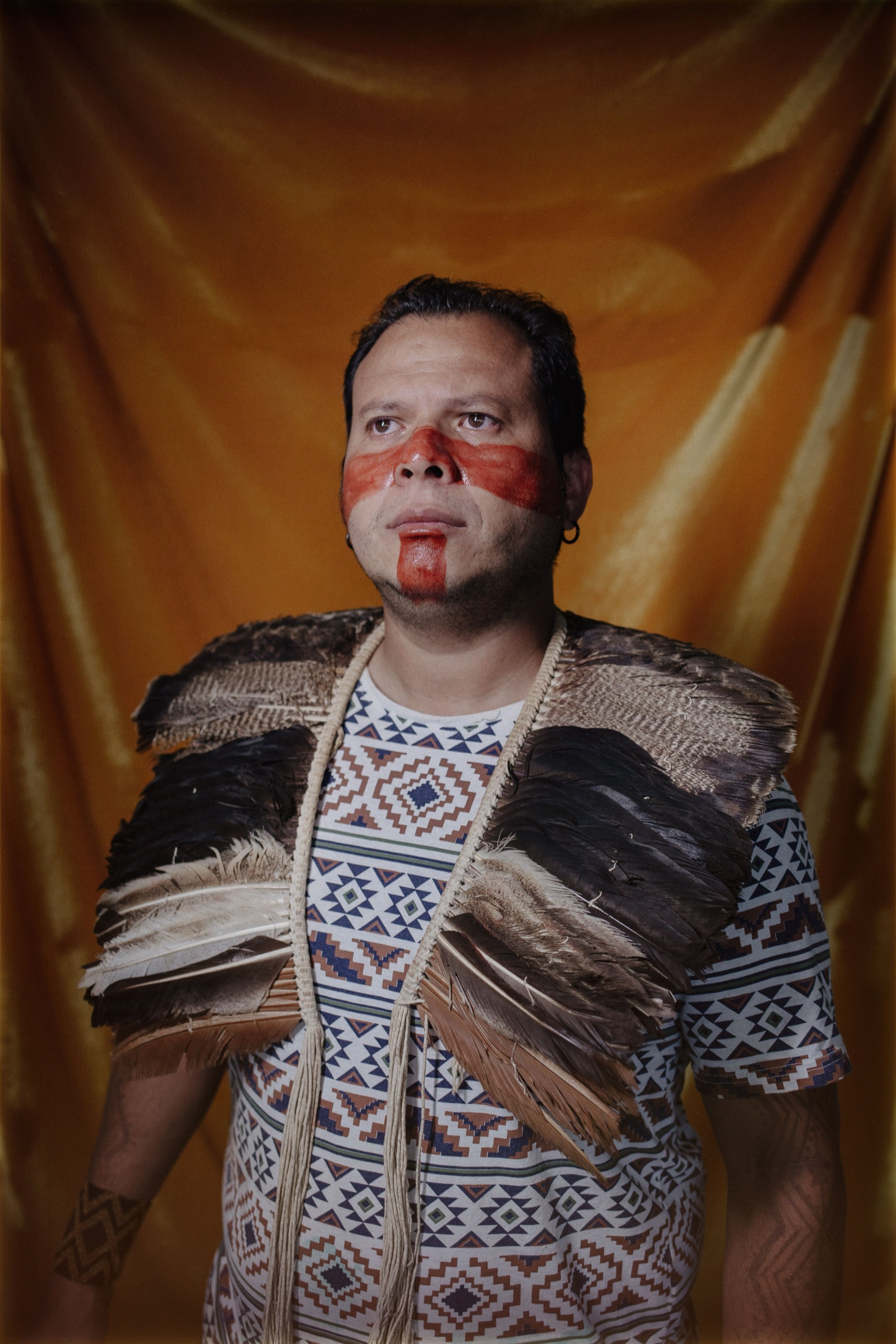
For now, the Lula government seems to be responding to the Yanomami crisis, but many challenges lie ahead. Conservative factions in Congress are pushing forward to undermine the powers of the Ministries of Environment and Indigenous Peoples. Conservatives hold a majority in the Brazilian congress, where they have voted to scale back the authority of the two ministries charged with Indigenous and Environmental affairs. These are now headed by leaders known to oppose the advances of agribusiness in the Amazon, a sector that makes Brazil the economic powerhouse of Latin America. In the halls of power, the ministries are taking a beating, which will affect Yanomami rights and the land demarcation effort.
“The Brazilian state has the real possibility to show the rest of the world that the defense of environmental and Indigenous rights matter, and it can be done through actions that will enhance the relevance of Brazil in foreign relations. The situation in Brazil became dire, but it still can show that it really has a responsibility towards Indigenous peoples,” Kleber Karipuna concluded.
Brazilian journalist Gabriel Leao is a regular contributor to the CIP Americas Program, specializing in gender issues and Brazil.



